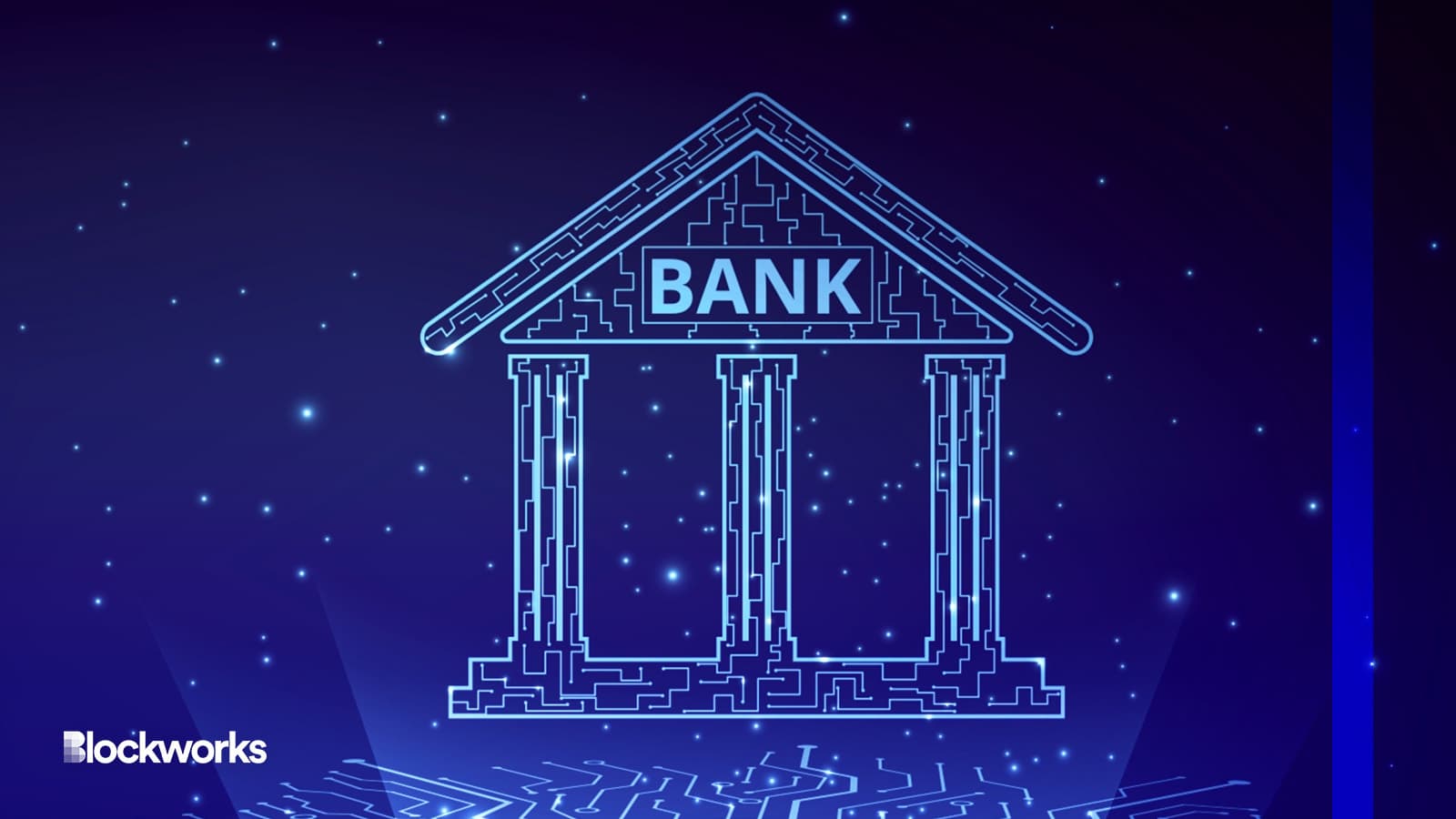DeFi Credit Protocol Pushes To Onboard Community Banks
Archblock and Adapt3r want to bring conservative cryptoassets to institutional investors

Chor muang/Shutterstock.com modified by Blockworks
A series of snafus has tainted trust in the DeFi ecosystem — but still crypto startup Archblock edges forward in its mission to onboard US-based community banks, and their liquidity, to the space.
Archblock, core contributor and incubator of Ethereum-powered credit protocol TrueFi, hopes its fresh partnership with Adapt3r, an affiliate of asset manager MJL Capital, can encourage low-risk traditional banking participants onto DeFi rails.
The two firms are planning to enable verified customers to hold lending pool (LP) tokens — which denote rights to generated yield — while community members can monitor on-chain portfolios in real-time, relying on permissionless blockchains rather than centralized financial institutions.
The idea is to create a frictionless on-ramp for community banks and other institutions to access DeFi financing, per press materials. New products will be offered on a rolling basis, and Adapt3r and Archblock will be building out an improved custom vault architecture and integrating Proof of Reserve oracle feeds.
Bill Wolf, Archblock’s chief investment officer, told Blockworks that the company had been in search of a business partner for over a year before coming across Adapt3r.
“We were looking for somebody who had experience on the capital allocation side, the structuring side, and also deep relationships with actual customer banks and the underlying issuing banks…and that’s what [Adapt3r] had,” he said.
Navigating trust and risk management
DeFi lending to institutional participants is not a new concept, but early entrants have experienced costly growing pains of late.
Earlier this month, cryptocurrency hedge fund Orthogonal Trading disclosed it had mischaracterized its financial exposure to collapsed exchange FTX.
This meant it was unable to meet loan repayments to M11’s Credit pool on Maple Finance, racking up liabilities totaling $31 million across four loans.
Algorithmic crypto trading and market making firm Auros also recently found itself laden with $2.4 million USDC debt to credit pools on uncollateralized DeFi lender Clearpool which it could not pay. The missed payments caused Auros’ credit rating to dip to a C on the platform, impacting its desirability as a counterparty.
Facilitators such as Archblock and Adapt3r are hoping to reduce incidents like these, while encouraging non-crypto native institutions to jump on board.
Marcus Leanos, co-founder and chief investment officer at Adapt3r told Blockworks that one of the biggest issues in DeFi today is a lack of transparency around the types of loans protocols have invested in.
“While DeFi has the potential to generate more immediate traction with underserved individuals and businesses, it will also face challenges with adverse selection, where unqualified borrowers are able to take advantage of the system,” Leanos said.
“There’s a lot of mindshare being paid to where exposures are, and tokenized assets that are conservative and sourced from regulated originators are surely needed.”
Unlike JP Morgan and Goldman Sachs, community banks must go to wholesale funding markets and borrow at high rates, Leanos said. Conservative credit assets are relatively scarce in DeFi and a handful of LPs are willing to accept a little less yield in exchange for safety.
“A lot of these banks also want to be involved in the deals because in addition to the immediate economic benefit they get where they look good to their shareholders, and they make more money. Over time, they’re also rubbing shoulders with people that are generally under-banked and sit on big cash positions and no one serves them,” Leanos said.
Ultimately, the new partnership brings together what Leanos believes to be one of the most realistic use cases for DeFi — describing it as “something that could scale and disrupt the real world assets sector and connect DeFi to the banking system.”
Conservative assets may be the key to bringing institutions to DeFi
Despite everything that has unfolded over the past few weeks, Leanos remains optimistic about large supplies of stablecoins on balance sheets that could be invested on-chain via DeFi.
“A large cohort of that population isn’t going to sell and move into fiat — they are waiting to access on-chain versions of traditional assets — which have higher yielding. But, there’s also a pretty big white space for conservative assets, and that’s really what we want to do — create reserve assets of sorts.”
This sentiment is shared by Wolf, who noted demand from DAO and corporate treasuries looking for more conservative yield bearing tokens.
“They want to understand where yields are coming from — and things that don’t sound too good to be true,” Wolf said.
DeFi protocols appear to be realizing this, too. MakerDAO’s DAI savings yields, for example, were recently bumped from 0.01% to 1%, pulling ahead of a string of Wall Street offerings from the likes of Wells Fargo and Chase.
Wolf believes that much of the recent problems in the market is similar to what happened in the dot com bubble in the late nineties.
“There was all this noise, and chaos that seemed to never end — but there were people building unbelievably powerful businesses — and that’s what is going on right now. Out of this chaos, and all this noise, is going to merge an incredibly powerful future for finance,” Wolf said.
Get the news in your inbox. Explore Blockworks newsletters:
- The Breakdown: Decoding crypto and the markets. Daily.
- 0xResearch: Alpha in your inbox. Think like an analyst.






